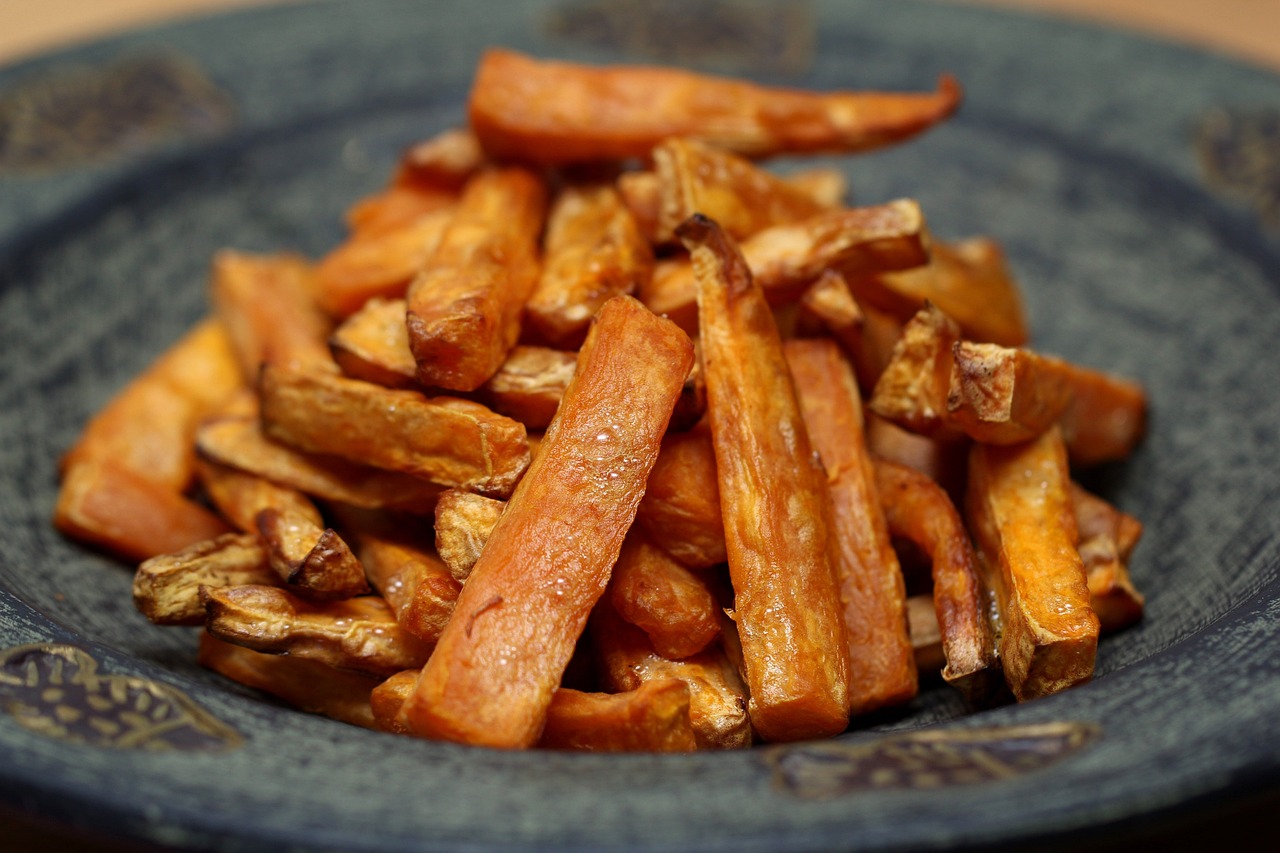When it comes to weight loss, people often look for foods that can help them shed those extra pounds effectively. With their natural sweetness and rich nutrient profile, sweet potatoes have gained attention as a potential addition to weight-loss diets. In this article, we’ll delve into the nutritional aspects of sweet potatoes and explore whether they aid or impede weight loss efforts.
The nutritional value of sweet potatoes
Sweet potatoes, a type of root vegetable, are tasty and highly nutritious. They include a wealth of essential nutrients such as complex carbs, fiber, vitamins, and minerals. Vitamin A, vitamin C, and potassium can all be found in relatively high concentrations in a medium-sized sweet potato. Those trying to cut calories will appreciate that sweet potatoes are among the lowest-calorie options.
The role of fiber in weight loss
Fiber plays a crucial role in weight loss and overall health. Sweet potatoes contain both soluble and insoluble fiber, which can contribute to a feeling of fullness and satiety. Foods high in fiber take longer to digest, keeping you satisfied for a longer period of time and potentially reducing overall calorie intake. Moreover, fiber can help regulate blood sugar levels, preventing energy crashes that often lead to overeating.
Sweet potatoes as a source of resistant starch
The resistant starch that makes it to the large intestine undigested is a special kind of starch that is resistant to digestion in the small intestine. Good gut bacteria feed on the contents of the big intestine. Positive effects on gut health have been linked to the consumption of sweet potatoes, which contain resistant starch. Improvements in both digestion and weight control have been linked to gut health.
Incorporating sweet potatoes into your diet
If you’re looking to include sweet potatoes in your weight loss journey, consider substituting them for higher-calorie, lower-nutrient foods in your meals. You can enjoy them as a side dish, add them to salads, or even use mashed sweet potatoes as a healthier alternative to traditional mashed potatoes.
Managing your weight
Increase satiety
The high fiber content of sweet potatoes makes them effective for maintaining satiety.
In particular, they are rich in soluble viscous fiber. This fiber creates a gel-like substance in the stomach and small intestine, which slows down digestion.
Because of this, you may find that you have less of an appetite. Soluble fiber-rich foods, including sweet potatoes, can aid in weight control for this reason.
Slimming down
A reduction in caloric intake leads to weight loss. In other words, it happens when calorie intake is lower than energy expenditure. Sweet potatoes may help you cut back on calories by making you feel full for longer.
Roughly 77% of raw sweet potatoes are water, whereas 13% are fiber. This implies that you might feel full on fewer calories while still benefiting from their sustained energy release.
Eating more fiber for at least 12 months was associated with sustained weight loss of at least 5% of body weight, according to a meta-analysis of 48 trials.
Similar results were seen in a short (8-week) trial of 58 office workers. In comparison to the control group, those who swapped out one meal a day for a meal replacement formula containing 132 grams of white sweet potato lost 5 percent more weight, body fat, and mid-arm circumference.
However, it’s possible that these outcomes resulted from people swapping out one of their regular meals for the lower-calorie formula. Sweet potatoes don’t have any special properties that make them effective for weight loss or gain.
Gaining weight
If you’re underweight or attempting to acquire muscle, putting on weight may be a priority for you, but if you’re currently at or beyond your ideal weight, you may be looking to avoid it.
When you consume more calories than your body burns off, weight gain happens. Extra calories are stored as fat or as fuel for your muscles and liver.
Protein in sweet potatoes is extremely low—just 2 grams per 4.5-ounce (130-gram) meal, or around 7% of the total calorie content. It’s a great source of carbohydrates because of this.
Your blood sugar may surge after eating these delectable tubers since there isn’t much protein or fat to slow down the rate at which the carbs are absorbed into your system. Keeping blood sugar levels in check might be key to maintaining a healthy weight, so this is something to think about.
A massive, four-year study involving almost 200,000 U.S. health professionals found that eating more potatoes was connected with gaining weight. The difference between white potatoes and sweet potatoes was not considered in the study.
The study also found that eating potatoes three times a week, regardless of preparation method, was associated with a higher risk of acquiring diabetes. The risk of developing diabetes was increased by 51% when eating boiled, mashed, or baked potatoes and by 54% when eating french fries.
Full of healthy ingredients
Calories come in a variety of shapes and sizes. For instance, sweet potatoes add a lot of nutrition to a meal.
What you get in one medium sweet potato (4.6 oz / 130 g)
- Calories: 112
- Carbs: 26 grams
- Protein: 2 grams
- Fat: 0.1 gram
- Fiber: 3.5 grams
- Vitamin A: 102% of the daily value (DV)
- Vitamin B6 (pyridoxine): 11% of the DV
Depending on your eating habits, sweet potatoes might help you lose weight or slow you down.
They have a beautiful flavor, a lot of useful nutrients, and a lot of fiber. They aid in weight loss and maintenance because they make you feel full for longer.
However, depending on the preparation method and the addition of sauces and sides, they might cause a rapid rise in blood sugar levels and contain excessive amounts of fat, sugar, and calories.
Sweet potatoes can be enjoyed as part of a healthy weight-reduction diet if they are boiled for 30 minutes and then seasoned with herbs, spices, spicy sauce, a little Parmesan, or garlic.
Remember that overeating, whether healthy or unhealthy, can lead to excess weight. If you want to keep your weight the same or reduce it, you should eat various foods in reasonable portions.
What are the best and worst techniques for cooking?
Sweet potatoes don’t contain a magic ingredient that will help you shed pounds, but how you prepare them and pair them with other foods can impact you.
The chemical makeup of sweet potatoes is modified during cooking. When you boil them, the starches become more digestible by your body’s enzymes, reducing their effect on your blood sugar.
Here are a few suggestions for healthier sweet potato dishes:
- Salted and mashed after being boiled.
- Slathered in guacamole after being cooked with the skin on.
- Cook with rosemary and lemon, then slice into thick disks.
However, deep-frying raises the calorie content of potatoes. This is because some of the oil used to fry the food remains in it.
If you’re trying to lose weight, cutting out deep-fried meals like sweet potatoes is a good idea.
In excess, any food can lead to weight gain, so moderation is key. The other foods you eat and the amount of exercise you get all play a role in your weight.
Incorporating sweet potatoes into your diet can be a delicious and nutritious way to support your weight loss goals. Their rich nutrient content, fiber, and complex carbohydrates make them a valuable addition to a balanced eating plan. Remember that while sweet potatoes can be beneficial, overall calorie intake and portion control remain essential factors in any weight loss journey. So go ahead, and savor the sweetness of sweet potatoes while on your path to a healthier you.
















Find Us on Socials